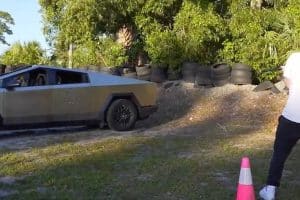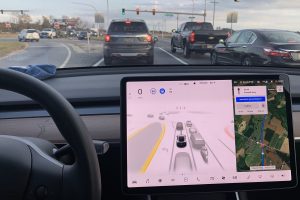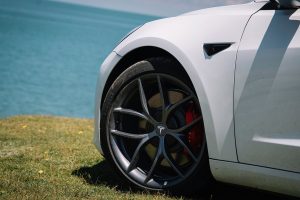Tesla’s electric vehicles are already among the best in the industry, but the company is known for never resting on its laurels. This definitely seems to be the case in China, as recent reports suggest that Tesla is looking to launch new Model 3 variants with CATL’s M3P batteries. The new batteries are expected to provide the vehicles with at least 10% more range.
For now, Tesla Model 3 sedans that are produced in Gigafactory Shanghai are equipped with CATLs lithium iron phosphate (LFP) batteries. On Tesla China’s order page for the Model 3, the all-electric sedan’s two variants are listed with CLTC ranges of 556 km (345 miles) and 675 km (419 miles), respectively.
As noted in a Sina Tech report, individuals familiar with the matter have noted that the use of CATL’s new M3P batteries should pave the way for the China-made Model 3 to achieve ranges that exceed 600 km and 700 km. This should make the Model 3 even more attractive to mainstream domestic electric vehicle buyers, as well as Tesla customers from countries currently receiving exports from Gigafactory Shanghai.
Interestingly enough, Tesla’s reported use of M3P batteries for the China-made Model 3 would leave some room for price reductions. This is because CATL’s M3P batteries are expected to be more cost-effective than the company’s previous cells. It should also be noted that earlier this month, reports from Chinese news outlet LatePost suggested that CATL will also be supplying M3P batteries for the China-made Tesla Model Y.
Tesla China, for its part, has noted that the recent reports are a rumor for now.
As noted in a CNEV Post report, CATL’s M3P batteries feature an energy density improvement of about 15% over LFP batteries, up to 210 Wh/kg. Despite this, they are estimated to cost just as much as LFP battery cells and less than ternary lithium batteries. CATL Chief Scientist Wu Kai, during a presentation at the 2022 World EV & ES Battery Conference last month, mentioned that M3P batteries are designed to target the 700 km and above market.
Wu also mentioned that CATL’s M3P batteries are already in mass production. With this in mind, it does seem quite feasible for Tesla to utilize the new cells, considering the company’s close relationship with CATL in its Gigafactory Shanghai operations.





